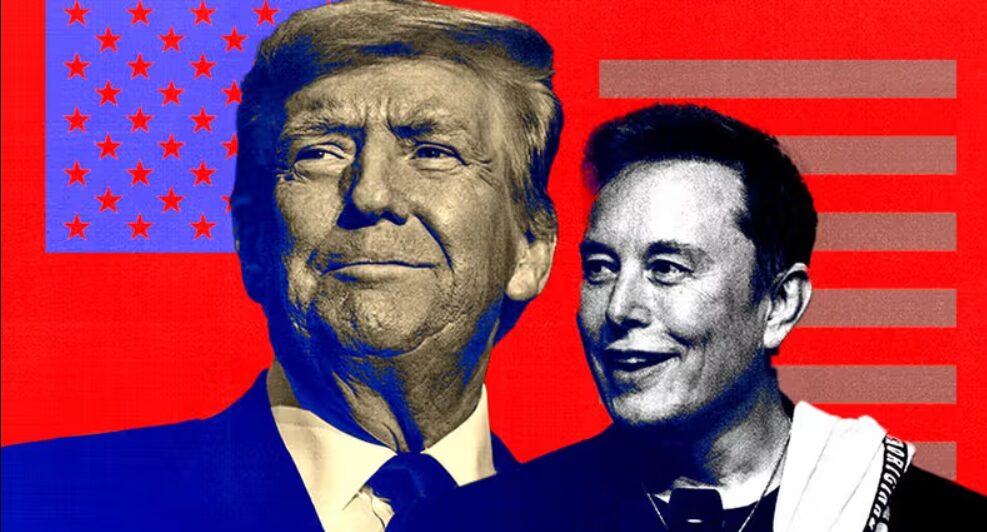Now, however, Musk has become Trump’s most high-profile supporter, attending campaign rallies and making substantial financial contributions. This evolution has raised eyebrows, especially among those familiar with Musk’s previous attempts to distance himself from the political fray.
In an October rally, Musk told the crowd that his involvement in politics came at great personal risk. “Dramatically increasing my risk of being assassinated, and engaging in politics, are not what I want to do. I do not have a death wish,” he said. “But the stakes are so high that I feel I have no choice but to do it.”
Business or Belief? Analyzing Musk’s Motives
While Musk’s support for Trump may seem rooted in business pragmatism, some experts argue that there is a deeper ideological alignment at play. Lenny Mendonca, California Governor Gavin Newsom’s former chief economic and business adviser, believes Musk’s endorsement of Trump is driven not just by financial considerations but by a libertarian mindset that aligns with Trump’s anti-establishment rhetoric.
“I think there is a breed of entrepreneur types who have had some business and financial success and have an ego that leads them to believe that therefore, they are knowledgeable and have ideas about everything,” Mendonca said. He describes Musk as a “techno-libertarian,” part of a cohort of tech elites who hold little faith in government and advocate for minimal regulation.
Interestingly, Musk’s influence diverges from that of his tech industry peers. Unlike Meta CEO Mark Zuckerberg, who has remained silent in the political arena, or Google and Apple’s leadership, who typically avoid partisan endorsements, Musk has taken a bold, public stance. Bill Echikson, a senior fellow at the Digital Innovation Initiative, observed that Musk’s approach is akin to “the Wild West” – a sharp contrast to the more restrained behavior of other tech CEOs.
The Potential Consequences of a Trump-Musk Alliance
Musk’s decision to align so publicly with Trump could have lasting consequences for both his businesses and the broader tech industry. Should Trump emerge victorious, Musk stands to gain from favorable policies, such as the continuation of Section 230 protections for social media platforms and potentially lucrative federal contracts for his various ventures. Mendonca argues that a Trump administration would likely take a more lenient approach toward Big Tech, in contrast to the Biden administration’s crackdown on industry giants.
Conversely, a Kamala Harris presidency could bring new challenges. Harris has previously expressed interest in revising Section 230, a move that could have significant repercussions for Musk’s platform, X. While the probability of repeal is low due to congressional gridlock, it would place additional scrutiny on Musk’s handling of user content and data.
Despite these potential challenges, Musk remains steadfast in his support for Trump, indicating that he views a Trump presidency as crucial to his vision for a deregulated, innovation-friendly landscape. As Mendonca notes, however, Musk’s aspirations may ultimately clash with the legal requirements of public office. Should Musk receive a cabinet or advisory position under Trump, he would likely be required to divest from his companies or place them in a blind trust to avoid conflicts of interest.
A Gamble on the Future of Tech and Politics
Elon Musk’s high-stakes bet on Trump’s political future highlights the evolving relationship between technology and government. As one of the few tech leaders willing to take an explicit political stance, Musk has positioned himself at the intersection of industry and governance, advocating for a future where private enterprise plays a dominant role in shaping public policy. Yet his gamble also exposes him to considerable risk, both financially and reputationally.
Regardless of the outcome, Musk’s involvement in the 2024 election underscores the growing influence of tech entrepreneurs in the political arena. With the next president poised to shape the future of tech regulation, Musk’s choice to side with Trump could set a precedent for how tech billionaires engage with politics.
As we approach the final stretch of the election, Musk’s actions raise fundamental questions about the role of wealth, influence, and ambition in American democracy. Will his gamble pay off, or will it backfire in the face of shifting political tides? Only time will tell.
